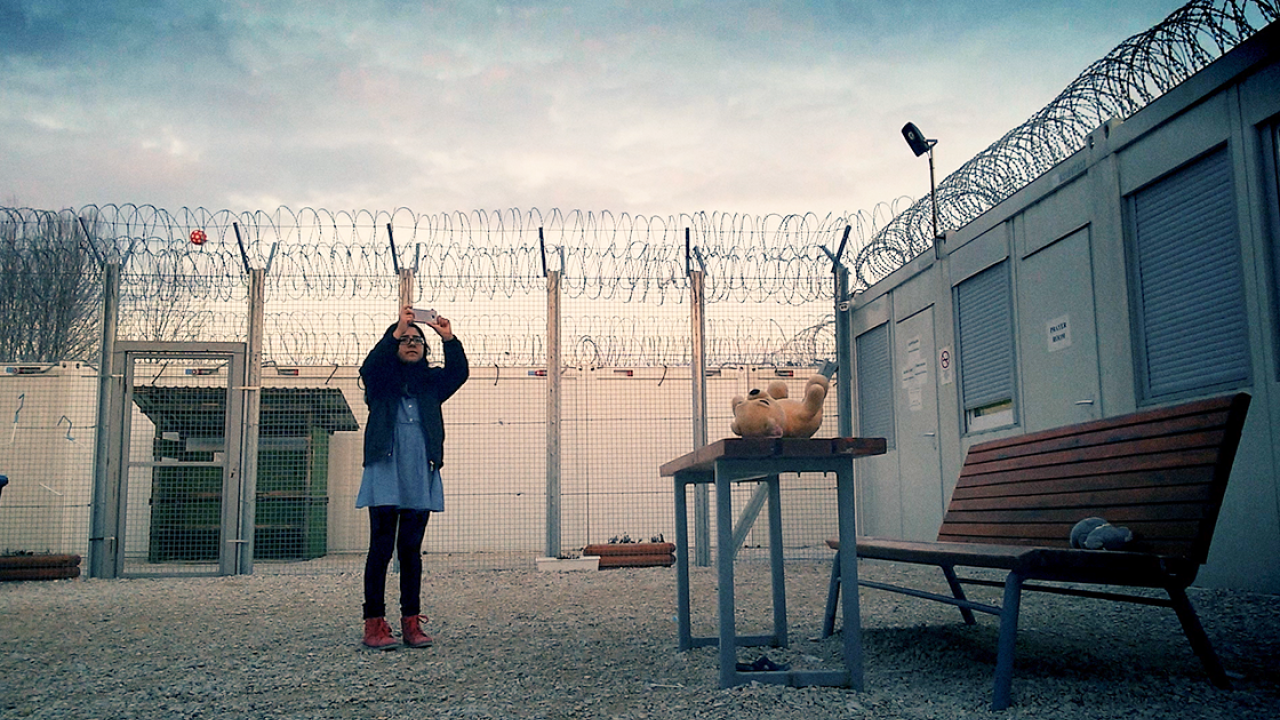A documentary that's also a thriller and a diary, Midnight Traveller in many ways picks up where last year's standout non-fiction title For Sama left off. Where its predecessor found student-turned-filmmaker Waad al-Kateab wrestling with the issue of whether or not to leave her besieged homeland of Syria as the bombs fell ever closer to her new family's neighbourhood, Hassan Fazili's film commits from the off to a vision of journalism in flight and parenting on the hoof, documenting the journey the director, his wife Fatima and their young daughters Nargis and Zahra were forced to make after Fazili was issued with a Taliban death threat in the spring of 2015. The plan was to set out from Tajikistan via Afghanistan, Iran and Turkey to what they hoped would be a safe haven in Greece; inevitably, there came a point where plans and reality headed in markedly different directions. The film's USP is that, having abandoned all non-essential equipment to speed their progress, this party recorded every last one of these deviations using three common-or-garden smartphones, presumably praying there'd be ample time and opportunity to charge their gadgets en route. The ninety-minute movie we have here, then, has been pieced together from the kind of thirty-second-to-one-minute clips any of us would take on our phones when passing through new and interesting territory, digital postcards from the unknown. Yet, as in For Sama, the images aren't ever so blithe that they could be mistaken for holiday snaps; instead, they carry the dread sense that Fazili and his family were recording to mitigate against those forces who would silence them or wipe them off the map, so as to have proofs in their pocket if ever the worst came to the worst. The film's describing a transitional moment to its audience, yet there are several points along the way where its images could just as easily be taken in as evidence of some kind.
For a while, you can have fun determining who shot what. No doubt Nargis or Zahra got the footage of the goats meandering round one makeshift stopping-off zone, the creatures proving rather freer to roam than the tiny humanoids trying to feed them, but only a grown-up would have troubled to tape the hustling that went on between smuggled and smuggler, or the large groups of people squeezed into the boots of cars or backs of vans. Increasingly, what's important is what they shot. It's someone (Fatima?) noticing the way Hassan slumps low when travelling, either through fatigue or to avoid detection; it's the girls' determination to treat this passage as an adventure, which might well keep spirits up while trudging through damp forests on a crocked ankle, though even they will succumb to boredom and tears at the thought of a childhood without books and toys or a garden of their own. Damningly, the family enjoy relatively easy going until they reach Europe, whereupon they find themselves betrayed by their smugglers, bitten by bugs, and beaten by nationalist thugs. (If there's one thing we sorely need to learn from Middle Eastern culture, it's how to be better hosts.) Yet country by country, frame by frame, Fazili succeeds in putting a face to a movement, to personalise what tends to be spoken about in abstract numerical terms, if at all that kindly. They're not quite saints - Hassan, a terrible flirt, is prone to hide behind the lens (as filmmakers do), while Fatima can come over as brusque, though I suspect you'd be snippy if you'd had to travel this far with no guarantee of settled status - but they're caretakers, not creeps, ghouls or leeches: witness how they fix the beat-up room they're assigned in a Bulgarian refugee camp, the evident pride they take throughout in watching their kids grow. Ideally, of course, this is a film its maker would never have had to make in the first place, or where the raw footage he did collect came back too benign and banal to ever be released theatrically. In our imperfect world, it presents as not just an engaging if occasionally tense watch, but a timely response to so much right-wing propaganda, and actually a pretty damn persuasive argument for keeping all borders open, if only to provide some means of escape.
Midnight Traveller is now playing in selected cinemas, and streaming via Curzon Home Cinema.

No comments:
Post a Comment